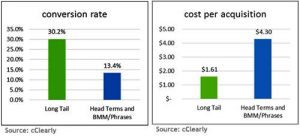Why Search Still Confuses Small Business Owners
by Laurie Sullivan, Staff Writer @lauriesullivan, February 2, 2017
Small business owners might spend more on online marketing this year to raise awareness and expand their businesses, but few plan to invest in search engine optimization or paid search. Even with all the classes offered by Google and Bing to help them understand the nuances, it still seems too confusing for many who don’t have the time and resources to dig in.
The survey results found that 40% of respondents did not feel their use of AdWords yielded new business leads, while an additional 33% said AdWords produced very few leads. The majority of these respondents also reported weak online presences — for example, that 62% do not have a mobile-friendly Web site, 92% lack online customer reviews, and 65% have unclaimed Google business listings.
Findings from the study released by Manta in mid-January suggest that while 46% of small business owners plan to spend $4,000 or more on marketing this year, 45% said they will spend it on social media. Some 24% will spend it on display advertising, 21% on mobile marketing, and a mere 6% will spend it on search engine optimization (SEO) and another 6% on paid search.
Some 51% of small business owners do not have a formal marketing plan, and the same percentage attribute a lack of budget for the delay in creating one.
Among the challenges: 18% admit they do not know how to develop a marketing plan, 15% don’t have enough time to dedicate themselves on marketing, 15% have enough business without marketing, and 11% lack the resources to develop a plan.
In response to the challenges, Manta released the white paper A Small Business Guide to Maximizing Paid Search Results – Part 1, based on findings from the survey of 613 small businesses owners who use Google AdWords.
The white paper addresses small business concerns like how to reach local consumers through mobile, finding a place in Google’s local three pack in search results, and SEO best practices such as making sure reviews reflect excellent customer service.
It makes sense that when consumers search for a business they are typically looking for a combination of quality and convenience. If there aren’t any reviews or if reviews are bad, they will likely travel the extra four miles to shop at the store with five stars.
MediaPost.com: Search Marketing Daily
(38)
Report Post






